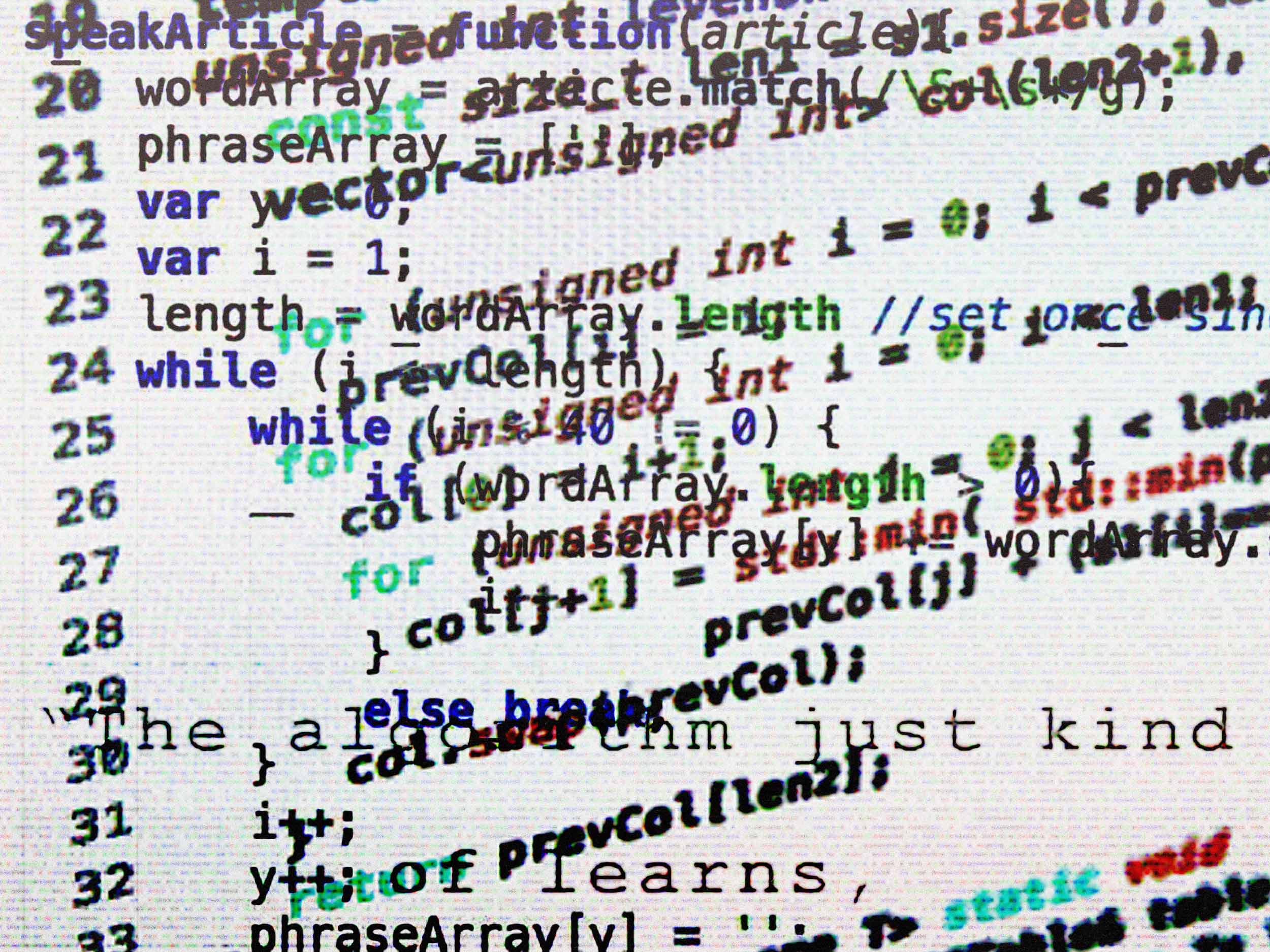TikTokers have come up with code words to discuss sensitive topics without triggering the algorithm—but instead, they’re triggering each other
From replacing LGBTQ with “leg booty” to spelling lesbian as “le$bian” to referring to suicide as “unaliving” oneself, there are a myriad of terms TikTok users have adopted in order to discuss sensitive topics without having their videos removed by the platform’s automated content moderation system. But in a misplaced attempt to avoid triggering the algorithm, TikTok users have also wound up triggering each other—most recently demonstrated in the case of Julia Fox, whose misunderstanding of one such codeword has sparked controversy, with many accusing her of trivializing sexual assault.
It all started when Fox commented on a TikTok in which a man, Connor Whipple, describes two women attempting to “use his mascara” without permission. “Idk why but I don’t feel bad for you lol,” wrote Fox, apparently unaware that “mascara” is the latest word TikTok users have come up with to reference sex or a penis without having their content flagged. After realizing her error, Fox returned to the video to apologize, saying, “I really thought u were talking about mascara like as in make up.” But though she claims to have had no idea what he was referencing, her comment has led many to criticize Fox for minimizing a traumatic experience, which Whipple hinted at using the hashtags “#saawareness #foryoupage #menspeakup.” (Though, as some users pointed out, many people skim over these, as TikTokers often add irrelevant trending tags to their videos in order to increase exposure.)
Others have risen to Fox’s defense, arguing that the problem with TikTok censorship is that users are making up so many cryptic code words to describe serious topics that “nobody ever knows what the hell anyone is actually talking about.” This is exacerbated by the fact that TikTok’s algorithm tends to sort users into hyper-specific groups, serving up niche content that has little in common with what other users of the app are seeing—so there’s a good chance that the code word taking over your FYP hasn’t even made it to someone else’s. Though “mascara” is now trending on TikTok, many users have also spoken up, stating that they had never heard of the term before Fox’s viral controversy, and similarly wouldn’t have had the context to understand it was referencing sexual assault.
“The problem with algospeak is that in order to stay one step ahead of the platform’s algorithm, you have to constantly come up with newer and newer code words—some of which your audience may not have encountered yet.”
For neurodivergent people, the possibility for such a high-stakes misunderstanding is especially anxiety-inducing—and, as fans have since pointed out, Julia Fox came out as autistic on TikTok last year, a fact that’s been skipped over by the myriad of people accusing her of being “out of touch” for missing the social cues required to interpret this kind of coded language.
The problem with algospeak is that in order to stay one step ahead of the platform’s algorithm, you have to constantly come up with newer and newer code words—some of which your audience may not have encountered yet. It’s not the only tactic users are employing to dodge censorship; for example, some people have utilized visual cues to evade the algorithm, by holding up signs about the topic of their TikTok. But this, too, has trade-offs when it comes to accessibility—visually impaired or blind uses, for instance, have no way to determine what is being discussed, absent any “text-to-speech” capability.
The problem algospeak poses for accessibility is further complicated by the fact that TikTok has become a platform that autistic people use to connect, bonding over common misconceptions and sharing their insights about what it’s like living in a neurotypical world. And for the neurodivergent community, navigating social cues is already a minefield—something that’s only exacerbated by the increasingly cryptic codewords required to dodge TikTok’s content moderation system, and the potential that misinterpreting these cues could result in accusations of insensitivity or worse. “‘Responding to something about mascara assuming they meant mascara except it apparently it means dick and now everyone’s saying you condoned rape is the sort of think that’s my #1 fear as an autistic guy,” wrote one user in a now-deleted comment. “And I usually deal with it by telling myself it’s not a reasonable fear.”







